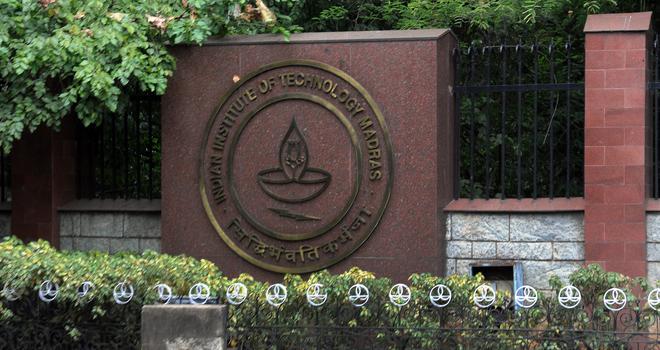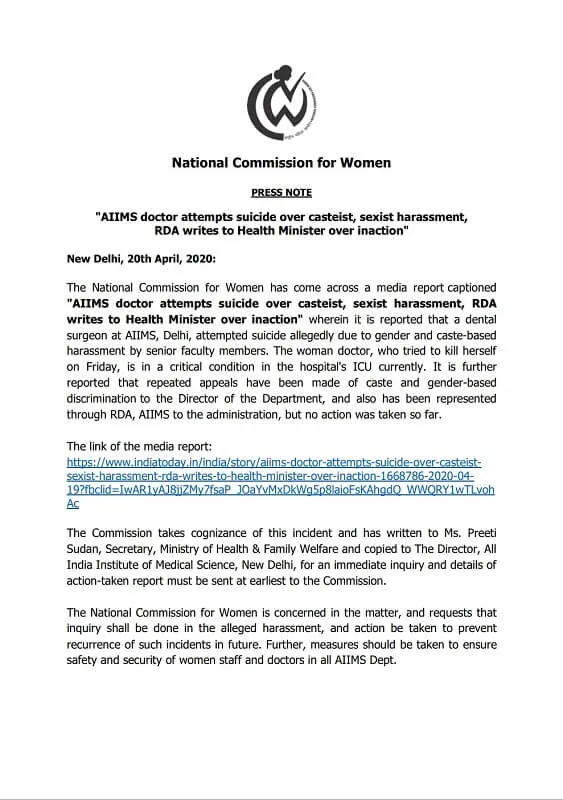IITs have become a den of institutional murders, a study by APSC IIT Bombay has claimed.
Sruti M.D.
08 Mar 2022
The death of Indian Institute of Technology (IIT) Madras student Fathima Latheef in November 2019 caused tremors on the campus and galvanised students into demanding structural changes in the institute’s administration to prevent such deaths and a more inclusive atmosphere.
The student group ChintaBAR made a three-point demand: studying the mental health of IIT Madras students, expanding the scope of the departmental grievance redressal cell to incorporate harassment and drafting a standard operating procedure to enquire into all deaths on the campus.
Ambedkar Periyar Study Circle (APSC), another student group at IIT Madras, demanded “an active cell containing students, faculty members and employees to address the issues of discrimination against SC, ST, OBC and minority communities”.
Although the institute’s administration promised to work towards fulfilling these demands, another IIT Madras student committed suicide in June 2021.
Shubhankar Dhiman, a 21-year-old aerospace student, committed suicide by hanging himself at his home in Sunder Nagar, Himachal Pradesh, when the campus was shut because of the pandemic and classes were online.
NO EFFORTS MADE BY ADMINISTRATION
Following Latheef’s death, IIT Madras students launched an indefinite fast to ensure that their demands were met. The fast was called off following an assurance by the dean of students that a complaint-and-redressal system will be set up in every department at the earliest and the issues faced by them would be looked into.
Some of the departments already have a grievance redressal cell which functions arbitrarily. “We demanded that the scope of the grievance redressal cell be expanded to include mental harassment and discrimination. It is unclear how these cells function and whether they consist of student representatives,” IIT Madras student Aswin Chadayan told Newsclick.
As for the study on mental health, the ChintaBAR statement read: “A study on the mental health of the students on campus would be conducted by a committee comprising psychologists, educationists, sociologists, etc. as was demanded by the student legislative council.”
Notably, Dhiman’s friends expressed doubts that academic issues could have led to his death as he wasn’t attending classes and could not write the end-of-semester examinations.
Referring to Dhiman’s suicide, Chadayan said, “When an IIT Madras student committed suicide in June last year, we reiterated the study on mental health. We sent out emails to the director and the dean of students. We have not received any reply to the mail till date. We had written to the administration to enquire about the progress of its promises and also sought information on the specific measures taken by the administration to address the issues faced by the students in the context of the COVID-19 pandemic.”
CLEAN CHIT DESPITE ACCUSATIONS
A couple of weeks ago, the Central Bureau of Investigation (CBI) had submitted its final report on the investigation into Latheef’s death concluding that she committed suicide and ruling out the possibility of mental harassment.
According to the report, Latheef had some psychological issues and took the extreme step due to homesickness. However, her father had alleged that she was subjected to mental torture and harassment which pushed her to commit suicide and pointed out discrepancies in the report.
Similar to the Latheef case, the committee set up to probe Vipin P Veetil’s allegation of discrimination against fellow faculty members found “no evidence of caste bias”. Veetil was an assistant professor at IIT Madras who belongs to a community from Other Backward Classes.
NO EFFORTS MADE BY ADMINISTRATION
Following Latheef’s death, IIT Madras students launched an indefinite fast to ensure that their demands were met. The fast was called off following an assurance by the dean of students that a complaint-and-redressal system will be set up in every department at the earliest and the issues faced by them would be looked into.
Some of the departments already have a grievance redressal cell which functions arbitrarily. “We demanded that the scope of the grievance redressal cell be expanded to include mental harassment and discrimination. It is unclear how these cells function and whether they consist of student representatives,” IIT Madras student Aswin Chadayan told Newsclick.
As for the study on mental health, the ChintaBAR statement read: “A study on the mental health of the students on campus would be conducted by a committee comprising psychologists, educationists, sociologists, etc. as was demanded by the student legislative council.”
Notably, Dhiman’s friends expressed doubts that academic issues could have led to his death as he wasn’t attending classes and could not write the end-of-semester examinations.
Referring to Dhiman’s suicide, Chadayan said, “When an IIT Madras student committed suicide in June last year, we reiterated the study on mental health. We sent out emails to the director and the dean of students. We have not received any reply to the mail till date. We had written to the administration to enquire about the progress of its promises and also sought information on the specific measures taken by the administration to address the issues faced by the students in the context of the COVID-19 pandemic.”
CLEAN CHIT DESPITE ACCUSATIONS
A couple of weeks ago, the Central Bureau of Investigation (CBI) had submitted its final report on the investigation into Latheef’s death concluding that she committed suicide and ruling out the possibility of mental harassment.
According to the report, Latheef had some psychological issues and took the extreme step due to homesickness. However, her father had alleged that she was subjected to mental torture and harassment which pushed her to commit suicide and pointed out discrepancies in the report.
Similar to the Latheef case, the committee set up to probe Vipin P Veetil’s allegation of discrimination against fellow faculty members found “no evidence of caste bias”. Veetil was an assistant professor at IIT Madras who belongs to a community from Other Backward Classes.
He rejected the findings alleging caste bias and procedural lapses, and said that key evidence was not considered in the inquiry.
‘DEN OF INSTITUTIONAL MURDERS’
Two deaths by suicide at the institute have been reported in the last 10 months alone—a project staff who was found dead inside the campus and a second-year student committed suicide at home.
Student suicides have been reported at other IITs in Delhi, Bombay and Kharagpur. In January, a 26-year-old postgraduate student of IIT Bombay died after allegedly jumping from the terrace of his hostel. In his suicide note, he had written that no one was responsible for his death.
“IITs have become a den of institutional murders. In 2019 alone, there were 16 institutional murders. These are systematic killings,” claims APSC IIT Bombay.
The IIT campuses have been repeatedly accused of not being inclusive and being elitist dens for upper castes while the marginalised and minorities are sidelined. RTI data shows that none of the IITs allow reservations in faculty positions.
















 Fathima Latheef | By special arrangement
Fathima Latheef | By special arrangement
 Fathima Latheef’s father had claimed that there were some notes left by his daughter on her mobile phone, though no suicide note was found from her room. (PTI File Photo )
Fathima Latheef’s father had claimed that there were some notes left by his daughter on her mobile phone, though no suicide note was found from her room. (PTI File Photo )



